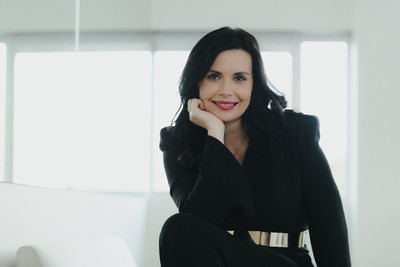Vanessa Stoykov: 3 things you need to get a life plan that works
Written and accurate as at: Jul 15, 2021 Current Stats & Facts

Financial literacy* is ’a combination of awareness, knowledge, skill, attitude and behaviours necessary to make sound financial decisions and ultimately achieve individual financial wellbeing’.
Our Financial Knowledge Centre is a collection of valuable articles, videos, calculators, quizzes, learning modules and much more that you can use to build on your financial knowledge—and improve your financial literacy.
With this in mind, we are pleased to share with you a special piece from renowned Australian money educator Vanessa Stoykov. In this piece featured below, Vanessa discusses the concept of life planning and money.
3 things you need to get a life plan that works by Vanessa Stoykov
I talk to people all the time about the concept of life planning and money—that is, getting what you want from your life, by creating a plan to be able to pay for it. So often, we go through life with a short term view of what we want—the next car, a holiday, or a home upgrade. But, what do all these big financial purchases do to your overall life goals—do they put you in debt that keeps you stuck, or are they part of your master plan to work toward the lifestyle you want over time?
When thinking about designing a life that you want, there are three things you must consider to get it right. Without them, you will fail to put in place a long term strategy that can be moved or adjusted as needed.
They are:
1. An agreed version of what the future looks like for you—10 and 20 years out. When I say agreed, meaning discussed and agreed by all stakeholders in your life, whether that be a partner, parent, child or anyone whose life has an impact on your decision making. So often, I see people that have failed to communicate what they really want from life—where they want to live, the pace they want to live at, the disposable income they want to spend. If you don’t define it yourself, and then seek agreement from those most important to you, the design is likely to be flawed, and has to change through unmet expectations.
2. A good grasp of your forward cash flow. Meaning, if you know your income moving forward, can you cost out what the life and the milestones you want will cost? For example, we pay for private high schools for our three sons. We have costed their fees into our forward cash flow (helped by our adviser, thank goodness!) until each has graduated year 12. So, we know the minimum we need to earn for the next six years to pay for our education costs. The more you plan your cash needs, the more you can create a plan that includes what you want. Or, you make another plan that is more realistic to afford.
3. The ability to be flexible. Despite our best efforts, we can’t always know what is coming ahead. The pandemic has taught us that. So, while you may have an agreed life plan, have forward cash-flowed the plan and know you can work toward it, you also have to expect the unexpected, and be flexible enough to adjust your life design. Whether it be for health reasons, or something completely out of your control, flexibility and the ability to pivot when needed will make sure you continue the process of life design—it is not a set and forget.
So often, I tell people they are the author of their own story, with the power to write our own endings. It takes some intention however, to plan that ending well, and all the milestones you want to experience along the way.
Nothing could be more important.
If you have any questions regarding this article, please contact us.
*OECD (2020). OECD/INFE 2020 International Survey of Adult Financial Literacy.











